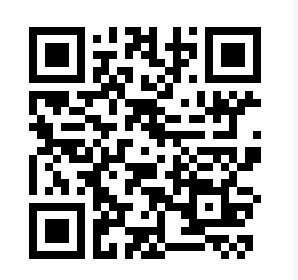Information Importance Filter
The next filter we will discuss is the Information Importance Filter (IIF). All data as it passes through this filter will be assigned a factor or degree of importance. This rating is relative to other data and is once again based upon the held world view. Using two young men from very different households, one grew up in America and has completed a college education, the other comes from Tibet, the happiest nation on earth. The world view given to the American is based upon social status and material wealth, while the young man from Tibet has a world view based greatly on pondering, self-reflection, and connection to a greater power. Both men find themselves in a US Airport during the Super Bowl waiting for a flight. While sitting in the lounge, the American is taking in every single detail of the game while the man from Tibet watches the game with a mild curiosity. In the held view of the American, he believes that if he isn’t able to repeat and reflect upon even the small details of the game tomorrow in the office, he will lose face and social status among his peers, as such, every detail of every play holds the highest importance and is given top priority in the American’s conscious mind. Since social status in Tibet is measured very differently, and people are more concerned with expansion of awareness and human connections, the same data is assigned such a low priority in the Tibetan’s conscious mind that he is not likely to recall much of the game.
Once again we see this interaction with the held world view to determine yet another attribute of the data received. In the case of the Importance Filter, data is assigned importance based upon the potential impact and timeliness of that impact as determined by the individual’s most stimulated instincts. In the commercial driven western society, where media driven fear of humiliation and self-loathing run rampant, almost nothing can be worse than the loss of social status, sometimes not even the loss of life itself. This can be demonstrated in the fact that not a westerner alive today couldn’t explain to you the dangers of using alcohol excessively, yet that danger is a small price to pay in order to gain the social status promised in all the commercials for being the life of the party. Anyone who has ever turned down the offer of a drink in a social setting has felt the negative social judgement that follows. Experiencing that feeling is how our society “self-polices” non-confirmative behavior.
The Importance Filter, as with the Truthfulness Filter, is not easily or directly influenced but rather is controlled by the held world view. As will be discussed in greater detail later, because the held world view determines what instincts are most highly stimulated, it will also determine what data holds the highest importance. In the article “Puppets On a String” I discuss how the average westerner is bombarded constantly with commercial messages targeted to undermine the individuals sense of self-worth. These messages over time reshape the persons held world view to one where fear of social humiliation is both a key and major component of the average westerner’s world view. Interestingly enough this state of heightened social anxiety is a major influence on the Importance filter. Consider a person who is facing a life threatening situation. As would be expected, they are in a state of heightened survival anxiety. Small sounds, smells, and unrecognized objects take on monumental importance in their consciousness while an over-due tax bill they have is likely to be completely forgotten. The same type of focus happens when a person is in a state of heightened social anxiety. Data that focuses on the topic of “social” and “status” becomes of monumental importance, while the more critical data for an individual’s long term survival like showing that the Sandy Hook shootings were staged is, at best, rated as irrelevant.
Those who would seek Mindfree will need to accept the truth of their heightened anxieties. Most have lived with them so long, they don’t take notice of them consciously in much the same way we don’t take conscious notice of our cloths until they become uncomfortable or we remove them. These anxieties are part of the world view individuals receive through education and are reinforced through commercials, movies and TV programming messages. Like clothes, people can and do wear or experience multiple anxieties. Modern American’s are given so many things to be concerned about, especially when compared to our parents or grandparents. Once only those is in high risk professions such as police, fire & rescue, or military in combat had to realistically face the concern of not living through the day. Now according to the media there is a legal gun owner that has lost their mind, a terrorist attacking the American way of life, massive plague just waiting under a rock or in a trash can to infect us, just lurking around every corner. New concerns are presented to the public by authorized information sources, “Experts”, every day. These new concerns are additional concerns to those highlighted everyday about the uncertainty of employment, retirement, health care, housing markets, stock markets, the list goes on. These states of heightened anxiety cause a person’s Importance Filter to classify data related to those anxieties as the most important for their conscious attention, even when the person is not conscious of these anxieties. However data that is very critical to a free human, such as the erosion of civil liberties or increases in civil obligations, are now ignored by nearly everyone. Those that do not ignore this data are themselves ignored or dismissed as irrelevant. Realistically, how can it be any other way with all people are given to be concerned about? It is critical to understand that the discovery of truth or steps toward enlightenment cannot be seriously pursued while in one or more of these states of heightened anxiety.



